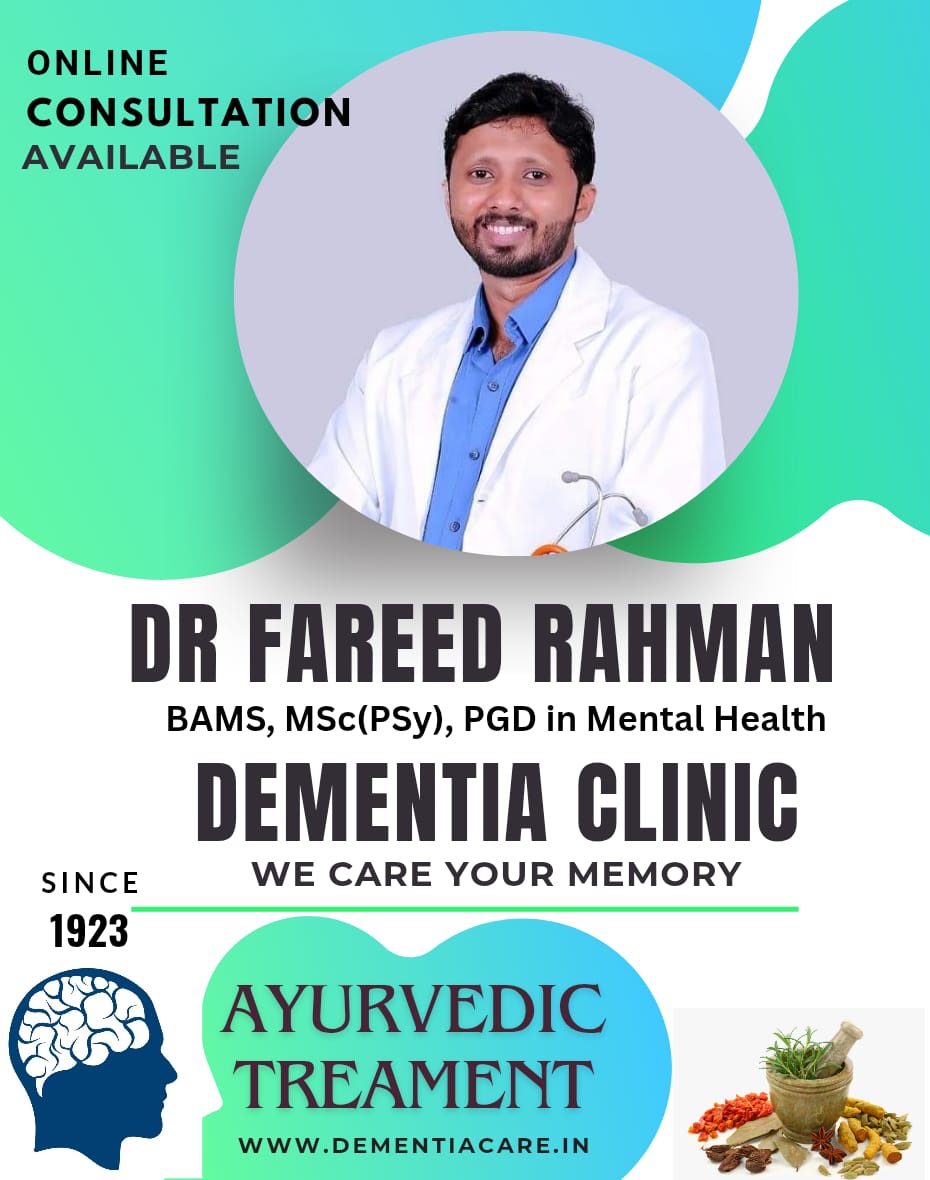Dr. Fareed Rahman is a prominent figure in dementia care, particularly known for integrating Ayurvedic principles with contemporary mental health practices. As the founder of Kottampara Ayurveda Dementia Care in Malappuram, Kerala, he has developed a holistic approach to treating dementia, focusing on both patients and their caregivers.
Dr. Fareed Rahman’s methodology combines traditional Ayurvedic treatments with modern psychological insights. His clinic offers personalized care plans that address the physical, mental, and spiritual aspects of dementia. This includes Ayurvedic therapies, counseling, and lifestyle modifications aimed at improving the quality of life for patients and providing support to their families.

A significant part of Dr. Rahman’s work involves managing Behavioral and Psychological Symptoms of Dementia (BPSD). By employing Ayurvedic treatments, he aims to alleviate symptoms such as agitation, depression, and anxiety, which are common in dementia patientsBeyond his clinical work, Dr. Rahman actively engages with the community through online consultations
Kottampara Ayurveda Dementia Care: A Holistic Approach
Kottampara Ayurveda Dementia Care, under Dr. Fareed Rahman’s leadership, is dedicated to improving the quality of life for individuals with dementia and providing support to their caregivers. Their approach is characterized by:
- Ayurvedic Treatment: This is a cornerstone of their practice, involving:
- Personalized Ayurvedic Medicines: Utilizing herbal remedies, dietary guidance, and lifestyle modifications tailored to individual patient needs.
- Ayurvedic Nootropic Formulations: Dr. Rahman is known for specialized formulations designed to enhance neurotransmitter function, improve cerebral circulation, and potentially slow cognitive decline.
- Holistic Care: Beyond just medication, the clinic focuses on the overall well-being of the patient, encompassing physical, mental, and emotional aspects. They aim to nurture the “whole person.”
- Compassionate Support for Caregivers: Recognizing that dementia affects the entire family, the clinic offers:
- Dementia Counseling: To help caregivers understand and manage the symptoms of dementia, and cope with the emotional challenges.
- Practical Guidance: Tips and advice on managing daily challenges like communication strategies, behavior management, and safety.
- Emotional Support: Creating a safe space for caregivers to express their feelings and concerns.
- Community Building: Fostering a supportive community where individuals and families can share their experiences and not feel isolated.
- Accessibility: The clinic offers affordable online consultations and has a user-friendly website to provide information and resources.
Way to Neuropsychology
His role as a neuropsychologist and his expertise in “Ayurvedic approaches to mental health treatment” indicate that his work involves:
- Understanding the Brain-Behavior Connection: He applies neuropsychological principles to assess cognitive and behavioral changes in dementia.
- Integrating Traditional and Modern Knowledge: He seeks to bridge the gap between traditional Ayurvedic wisdom and contemporary neuroscientific understanding of the brain and its disorders.
- Focus on Nootropics and Brain Health: His development of specialized Ayurvedic nootropic formulations suggests an interest in how natural compounds can influence brain function, circulation, and cognitive health.
- Addressing the “Whole Person”: His holistic approach, considering the interconnectedness of mind, body, and spirit, aligns with a broader neurocognitive perspective that acknowledges the complex interplay of biological, psychological, and social factors in dementia.
In essence, Dr. Fareed Rahman’s work with dementia patients through Kottampara Ayurveda Dementia Care is a testament to his dedication to providing comprehensive, compassionate, and integrated care, leveraging the strengths of Ayurveda alongside insights from modern neuropsychology. His focus is on not just managing symptoms, but on enriching the lives of patients and their families, fostering hope and improving their overall quality of life.



